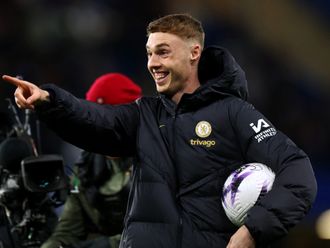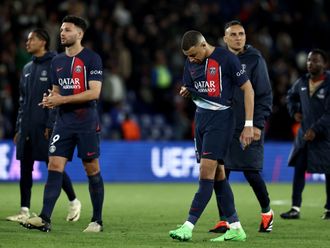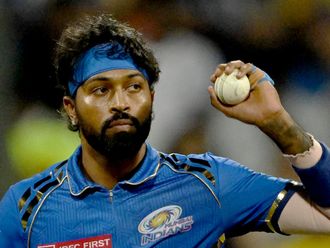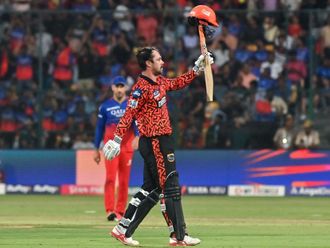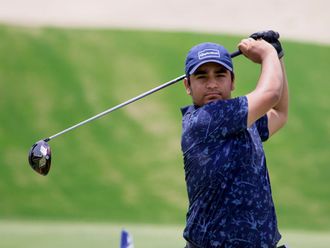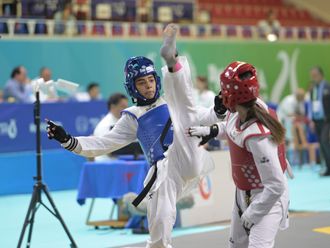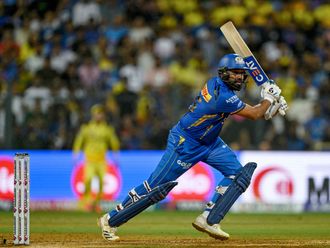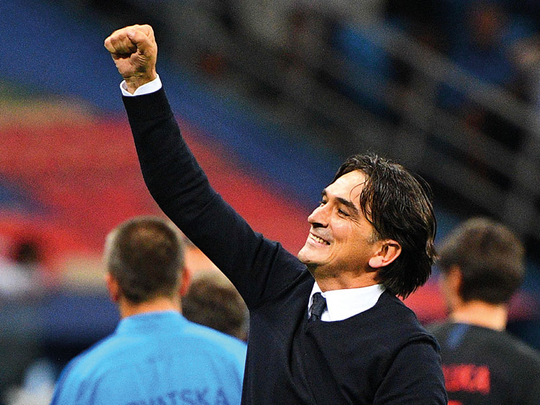
Abu Dhabi: In 90 minutes last Thursday, Croatia attained one of the finest moments of their football expedition — sinking two-time champions Argentina to their second worst defeat (3-0) in the history of Fifa World Cup.
The moment also instantaneously skyrocketed coach Zlatko Dalic’s reputation from a club coach of the Middle East to one who achieved the impossible.
Who would have thought Dalic would see this day when he was leading the reigns of Al Ain until early last year? The man who led the capital’s purple brigade for nearly three years exited from the UAE on a forgettable note but on his own terms. ‘The Boss’ climbed more than 200 places on the club rankings and reached fifth best position in Asia in less than two years under Dalic.
Al Ain also won the 2014 President’s Cup, Arabian Gulf League (AGL) 2014-15, the Arabian Gulf Super Cup 2015 under him. The side, however, hit a low by their standards in the third year — marred with some off the field controversies.
The 2016 season started with the dissolving of the entire team management following a row over a commercial with a luxury car-maker that featured the UAE national anthem.
Despite the turmoil, to save the team from withering into shreds, the Croatian was wisely retained. Showing tremendous grit and support, he induced enough confidence in the players to weather the testing times and they made it to the AFC Champions League final in November.
However, Brazilian striker Douglas was guilty of missing a crucial penalty against South Korean club Jeonbuk Motors that could have handed Al Ain the title in the regional showpiece event for the second time since 2003. That loss was a hard pill to swallow for Al Ain supporters and they were gunning for Douglas’ head.
For standing behind the striker and not opting to give the Brazilian the boot immediately, Dalic also faced the ire of the fans. These turn of events didn’t help Al Ain in the local front either and they fell behind in the league and voices for Dalic’s ouster grew.
Finally, on January 24, 2017, an emotional Dalic announced his departure as manager following his side’s 3-1 loss to Al Jazira in the AGL.
“I have done my best. I don’t want people coming and shouting and abusing me and my club. I spoke with my supervisor that I’m ready to leave. I’m really proud of my three years at the club. I think it’s time. I don’t want to take anything from anybody. I need to rest,” said Dalic, adding that he was mentally drained out and needed a break despite having immediate offers from a few Saudi clubs.
How good the eight-month long sabbatical for Dalic was — it was there for everyone to see at Nizhny Novgorod Stadium the other day. He took charge of his national team last October when their World Cup qualifying hopes were on tenterhooks following a 1-1 draw against Finland. On the eve of their final qualifying match against Ukraine, then coach Ante Cacic was given the boot and Dalic was handed the challenge.
It was the worst situation to be in but the 51-year-old tactician made it work and Croatia won 2-0 to make the playoffs. Then came the big moment — the World Cup finals berth beating Greece 4-1 in the first leg in Zagreb and then holding them to a 0-0 draw in Athens.
The World Cup opener victory against Nigeria (2-0) was the perfect start to their campaign but the win against Argentina in such an authoritative fashion was an assurance that the team with the likes of heavyweights — Real Madrid ace Luka Modric, Barcelona’s Ivan Rakitic and Juventus’ Mario Mandzukic are peaking well under Dalic.
As Argentinian coach Jorge Sampaoli was tearing his non-existent hair and getting agitated with his non-responsive Lionel Messi-led team, most in UAE watching the ice-cool Dalic in the dugout would have remembered the one statement that the Croatian always reiterated: “In pressure matches, one first needs to be calm and then push your team to play to your plans. More importantly, play to the team’s strengths.”




